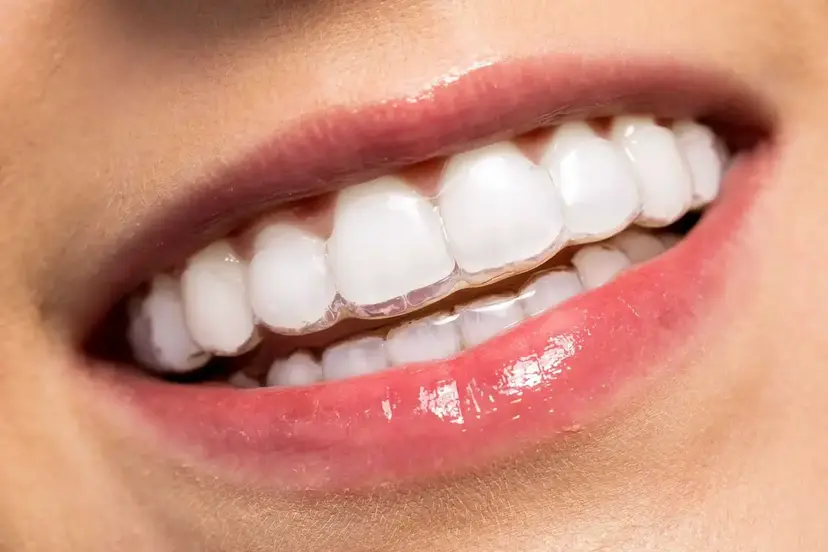MakeO blog
The key to a healthy mouth is to maintain good oral hygiene practices. Mouth Rinsing goes beyond using a toothbrush and floss. It is essential to kill the bacteria in your mouth for a healthy and fresh mouth every day. Mouthwash, also known as a mouth rinse or oral rinse, is a liquid solution designed to freshen breath, kill bacteria and promote overall oral hygiene. It is a fantastic addition to daily oral care routines and comes in various types and flavours.
In this article, let us learn all about the techniques to rinse your mouth properly, safety tips and how to use mouthwash to make the most of it.
Is it necessary to use mouthwash or mouth rinse?
Using mouthwash is not mandatory to maintain good oral hygiene. However, it can be a valuable addition to your dental care routine. If you have any specific oral health concerns like bad breath, gum disease or a high risk of cavities, mouthwash can be ideal for you. It can not only kill the bacteria in the mouth but also reach areas in the mouth that may be missed during brushing and flossing.
How to use mouthwash correctly?
1. Measure the appropriate amount
Pour the recommended amount of mouthwash into a cup or dispenser. This is typically around 20-30 millilitres (about 4-6 teaspoons), but it may vary depending on the brand and type of mouthwash. Read the instructions on the bottle for better guidance.
2. Swish, don't swallow
For proper mouth rising, take the mouthwash into your mouth and swish it around for about 30 seconds to one minute. Be sure not to swallow the mouthwash; instead, tilt your head back slightly and continue to swish it around your teeth, gums and every corner of the mouth.
3. Reach all areas
While swishing, ensure that it reaches all areas in your mouth including the front, back and sides of your teeth as well as your tongue and gums. This will help ensure that the mouthwash reaches all the surfaces where bacteria can accumulate, providing you with the maximum benefits of mouthwash.
4. Avoid drinking water immediately after
After swishing for the recommended time, spit out the mouthwash into the sink. Avoid rinsing your mouth or drinking water immediately afterwards to allow the active ingredients in the mouthwash to continue their work.
When to use mouthwash?
Mouthwash should ideally be used for mouth rinsing after brushing and flossing your teeth. This allows the mouthwash to complement your regular oral care routine by providing an extra level of cleanliness and freshening your breath. Using mouthwash in the morning can help start the day with a fresh mouth and using it at night can help eliminate bacteria and plaque buildup before bedtime. However, it is important to keep in mind that mouthwash cannot be considered a substitute for brushing and flossing.
How often should you use mouthwash?
The frequency of using mouthwash depends on your specific needs and the recommendations of your dentist. In general, using mouthwash once or twice a day is sufficient for most individuals. However, if you have specific oral health concerns or your dentist advises otherwise, you may need to use mouthwash more frequently. It's always ideal to talk to your dentist to determine the proper usage for your specific needs.
Safety tips to follow while using a mouthwash
1. Read the label
Always read the instructions on the mouthwash bottle and follow them correctly. Pay attention to any warnings or precautions mentioned on the label for proper mouth rinsing.
2. Avoid swallowing
Mouthwash is not meant to be swallowed, as it contains ingredients that can be harmful if ingested in large quantities. Spit out the mouthwash after use and rinse your mouth with water if accidental swallowing occurs.
3. Avoid alcohol-based mouthwashes
Alcohol-based mouthwashes may cause a burning sensation or dryness in the mouth. If you experience any discomfort consider switching to an alcohol-free alternative.
4. Keep it away from children
Keep mouthwash out of reach of young children and supervise their use to prevent accidental swallowing. Some mouthwashes may not be suitable for children under a certain age so consult with your child's dentist for appropriate recommendations.
Conclusion
Using mouthwash correctly can enhance your oral hygiene routine by killing bacteria, freshening breath and reaching areas that brushing and flossing may miss. Incorporating mouthwash into your daily oral care can help improve overall oral health. To make the most of your mouthwash, remember to follow the proper steps and use it in combination with regular brushing and flossing and consult your dentist for personalised advice.
At makeO toothsi, we believe in the power of a healthy smile. Whether you have crooked teeth and need a non-invasive method to straighten your smile, looking for products like Electric Toothbrush or Smart Water Flosser to elevate your daily dental care, or just need a free consultation from our experts, makeO toothsi is here for you. Reach out to us online through our website or walk-in to your nearest makeO toothsi experience centre for a free consultation.
FAQs
Should I dilute mouthwash with water?
It is okay to dilute your mouthwash. However, try not to dilute it too much as this may reduce its effectiveness. Read the instructions written on the bottle for the best results.
Is it recommended to use mouthwash before or after brushing my teeth?
It is generally a good idea to use mouthwash after brushing and flossing your teeth. This allows the mouthwash to complement your oral care routine by providing an extra level of cleanliness.
Can mouthwash replace brushing and flossing?
No, mouthwash should not replace brushing and flossing. It is a supplementary step that can enhance your oral hygiene routine, but it does not provide the same level of cleaning as brushing and flossing.
Is mouthwash recommended for me if I have sensitive teeth or gums?
If you have sensitive teeth or gums, choose a mouthwash specifically formulated for sensitivity or consult with your dentist for recommendations. Some mouthwashes may be too harsh for sensitive mouths.
Are natural mouthwashes as effective as conventional ones?
Natural mouthwashes can be effective in freshening breath, but they may not have the same antibacterial properties as conventional mouthwashes. Consider your oral health needs when choosing a mouthwash.
related categories
Related articles

Types of Braces: Removable vs Fixed Braces, Which is Right For You?

This Diwali, Smile Bright With makeO Teeth Whitening Kit

Dr. Pravin Shetty: Pioneer in Lingual Orthodontics & Innovative Smile Solutions
How do I Know I’m the Right Candidate for makeO toothsi Teeth Aligners?

